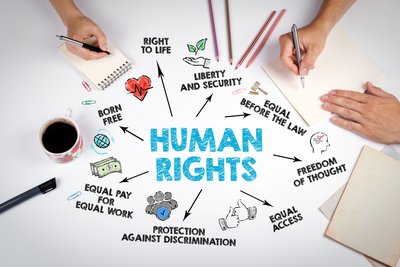29 Aug 2023
New research project! Human Rights Justifications
WTI's SNSF Professor, Elisa Fornalé, is part of a new HORIZON-EUROPE-funded project led by the University of Gothenburg: HR Just. It examines how States use Human Rights Justifications to explain and defend their actions and decisions.
The project called “States’ Practices of Human Rights Justification: a study in civil society engagement and human rights through the lens of gender and intersectionality” (HR Just) explores how states use human rights concepts and the language of human rights to justify decisions. Specifically, it will focus on decisions regarding COVID-19, migration, and climate change.
Human Rights Justification is when States use human rights to explain and defend their decision and actions. HR Just aim to examine the consequences of when States use human rights as a governance instrument. Human rights justification is different from how the post world war design of human rights as a system of legal norms regulating states behaviour towards its citizens is intended to be used. The post world war system is a binary system based on States compliance and violation of human rights, not of States using human rights as a governance tool.
When States use human rights to justify their actions and decisions, the function of the human rights regime is renegotiated. It switches from seeing the individual as the rights holder and the State as the possible violator of individual rights to an instrument legitimising the actions of the State.
We propose that the consequences of Human Rights Justifications for the individual human rights protection against State violations must be identified and evaluated.
The risk is that international and constitutional legal development has not kept up with the political use of Human Rights Justifications. Law still sees human rights in the light of the binary compliance and violation, while States use them as governance instruments, leading to possible gaps in the individual human rights protection.
WTI's Prof Elisa Fornalé joins a team of researchers from fifteen institutions in Sweden, Finland, Taiwan, the Netherlands, Italy, Israel, the Czech Republic and India. They are organised in thematic working teams and their findings will help public authorities, NGOs, and the public to recognize and understand how policy, regulations, and law can be adapted to better protect individuals in future crises.
Further info
Project website
Project Partner: University of Lapland
Project Partner: Stockholm University




